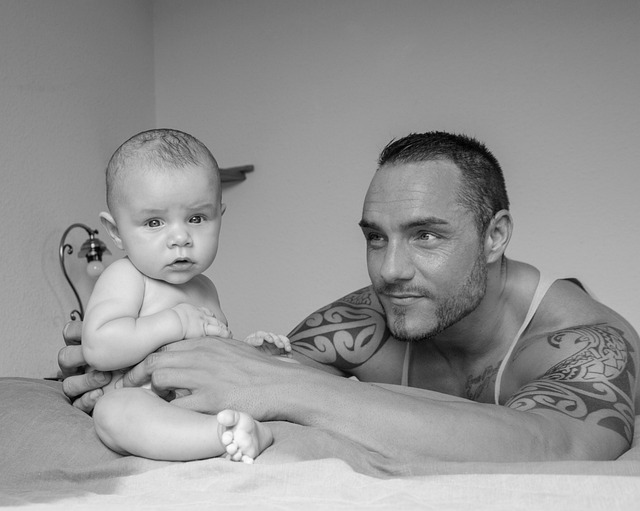Child welfare disputes involve balancing parental rights protection with child well-being. Specialized family lawyers are crucial in navigating these complexities, providing legal assistance and advocacy. They guide parents through laws and regulations, craft strategies for resolution, and ensure compliance to safeguard rights and achieve fair outcomes. These professionals use tactics like challenging evidence admissibility and facilitating communication to protect parental rights while promoting the best interests of the child, ultimately aiming for positive resolutions through mediation or court proceedings.
Child welfare disputes can be emotionally charged and complex, often impacting the future of children and families. Understanding your parental rights and navigating the legal system is crucial for resolving these disputes fairly. This article delves into the critical role of legal assistance in protecting parental rights, exploring key legal strategies, court system navigation, and building a strong case to ensure positive outcomes for all parties involved.
- Understanding Child Welfare Disputes and Parental Rights
- The Role of Legal Assistance in Resolving These Disputes
- Protecting Parental Rights: Key Legal Strategies
- Navigating the Court System for Fair resolutions
- Building a Strong Case with Legal Support
Understanding Child Welfare Disputes and Parental Rights

Child welfare disputes often arise from complex situations involving family dynamics, legal frameworks, and the best interests of the child. At their core, these disputes centre around parental rights and responsibilities, with a primary focus on safeguarding the child’s well-being. Understanding the intricate web of parental rights protection is paramount in navigating such conflicts.
Parental rights encompass various aspects, including the legal authority to make decisions regarding a child’s upbringing, care, and welfare. This includes choices related to education, healthcare, religion, and daily routines. In cases where these rights are disputed or threatened, legal assistance becomes invaluable. Lawyers specializing in family law can guide parents through the complexities of the legal system, ensuring their rights are protected and advocating for their involvement in significant decisions affecting their children’s lives.
The Role of Legal Assistance in Resolving These Disputes

In child welfare disputes, legal assistance plays a pivotal role in ensuring fair outcomes and protecting parental rights. The intricate nature of these cases often requires specialized knowledge to navigate complex laws and regulations related to family law and child protection. Legal professionals with expertise in this field can guide parents through every step, explaining their rights and options clearly. They help in preparing robust legal strategies tailored to each unique situation, aiming to resolve disputes amicably or advocate for the best interests of the child in court proceedings.
By providing legal assistance, parents gain a powerful tool to safeguard their parental rights and responsibilities. Skilled lawyers can offer mediation services, facilitating open communication between all parties involved. This process encourages cooperative problem-solving, potentially avoiding lengthy and emotionally draining litigation. Moreover, legal counsel ensures that every document and decision is in line with applicable laws, minimizing the risk of rights infringement and promoting a swift resolution that benefits both parents and the child.
Protecting Parental Rights: Key Legal Strategies

Protecting parental rights is a cornerstone in child welfare disputes, where legal strategies play a pivotal role in ensuring fair outcomes for all parties involved. Lawyers specializing in family law employ various tactics to safeguard parents’ fundamental right to raise their children. One key strategy involves challenging the admissibility of evidence gathered during investigations, focusing on procedural irregularities or violations of parental due process rights. By presenting well-reasoned legal arguments, they can exclude potentially biased or improperly obtained information, thus weakening the case against the parents.
Additionally, these legal experts facilitate communication and negotiation between parents and child welfare agencies. They encourage collaborative problem-solving, aiming to reach agreements that preserve familial bonds while addressing concerns regarding child safety. Through mediation or alternative dispute resolution methods, lawyers help navigate complex emotions and legal complexities, fostering a more harmonious resolution. Ultimately, the goal is to protect parental rights while ensuring the best interests of the child are met.
Navigating the Court System for Fair resolutions

Navigating the court system is a complex process, especially when it comes to child welfare disputes. It requires a deep understanding of legal procedures and an unwavering commitment to advocating for the best interests of the child. The goal is to ensure fair resolutions that respect and protect parental rights while prioritizing the well-being and safety of the child.
Legal assistance plays a pivotal role in this journey. Skilled attorneys specialized in family law can guide parents through the intricate legal landscape, helping them understand their rights and obligations. They facilitate effective communication with the court system, ensuring all relevant information is presented clearly and compellingly. This process involves preparing legal documents, gathering evidence, and arguing cases before judges, ultimately aiming to reach just and impartial outcomes that foster positive resolutions for both parents and children involved in child welfare disputes.
Building a Strong Case with Legal Support

Legal assistance plays a pivotal role in building a robust case for child welfare disputes, ensuring the safeguarding of parental rights. With the expertise of legal professionals, parents can navigate complex legal procedures with confidence. These experts help gather and present compelling evidence, including medical records, educational reports, and witness statements, to demonstrate the best interests of the child and the fitness of the parent.
By leveraging legal strategies tailored to each case, parents gain a powerful advantage. Legal support enables them to challenge false allegations, protect their privacy, and ensure their rights are upheld throughout the process. This is particularly crucial when dealing with sensitive issues related to parental fitness, where every detail matters. With the help of lawyers, parents can present their side effectively, ultimately fostering a fair and just outcome for both the family and the child.






